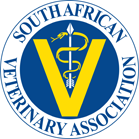Original Research
A retrospective investigation of canine adenovirus (CAV) infection in adult dogs in Turkey : article
Journal of the South African Veterinary Association | Vol 80, No 2 | a176 |
DOI: https://doi.org/10.4102/jsava.v80i2.176
| © 2009 S. Gur, A. Acar
| This work is licensed under CC Attribution 4.0
Submitted: 22 May 2009 | Published: 22 May 2009
Submitted: 22 May 2009 | Published: 22 May 2009
About the author(s)
S. Gur,A. Acar,
Full Text:
PDF (197KB)Abstract
Canine adenovirus (CAV) type 1 and 2, respectively, cause infectious canine hepatitis and infectious canine laryngotracheitis in members of the families Canidae and Ursidae worldwide. Both of these infections are acute diseases, especially in young dogs. The aim of this study was to conduct a serological investigation of canine adenovirus infection. For this purpose, serumsamples were collected from native pure-bred Kangal (n = 11), and Akbash dogs (n = 17) and Turkish Greyhounds (n=15) in Eskisehir and Konya provinces. None ofthe dogs were previously vaccinated against CAV types. Indirect ELISA detected 88.2 %, 93.3 % and 100 % prevalences in Akbash, Greyhound and Kangal dogs, respectively. The remainder of the samples (n = 51) were collected at the Afyonkarahisar Municipality Shelter. Fourty-two of these dogs (82.3 %) were detected as seropositive. In total, 82 of 94 dogs (87.2 %) were found to be positive for CAV serum antibodies.
Keywords
antibody; canine adenovirus; dog; Turkey
Metrics
Total abstract views: 3176Total article views: 3171
